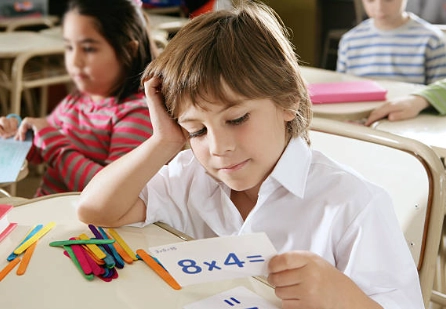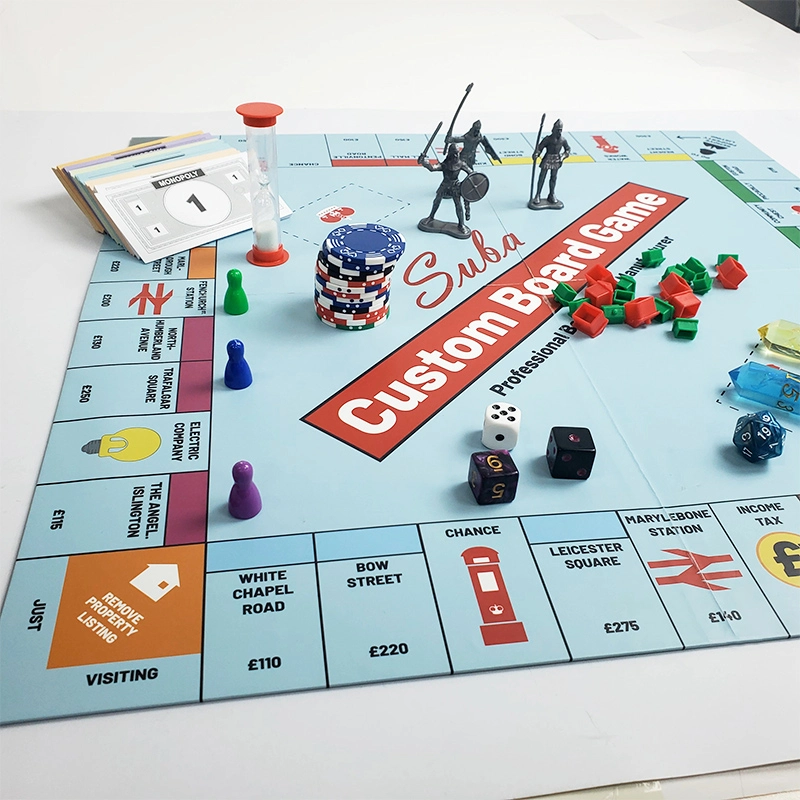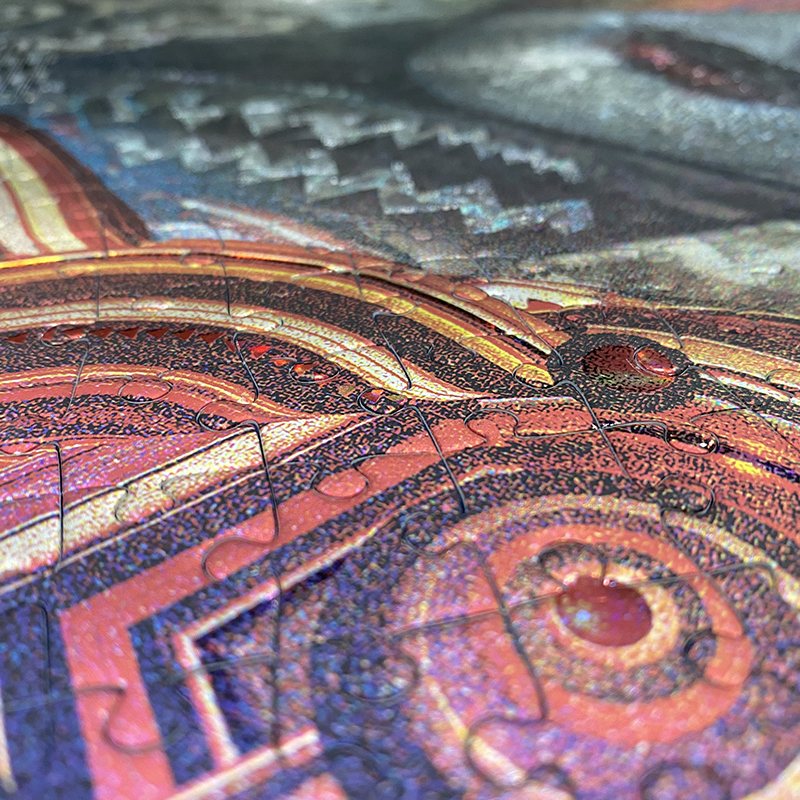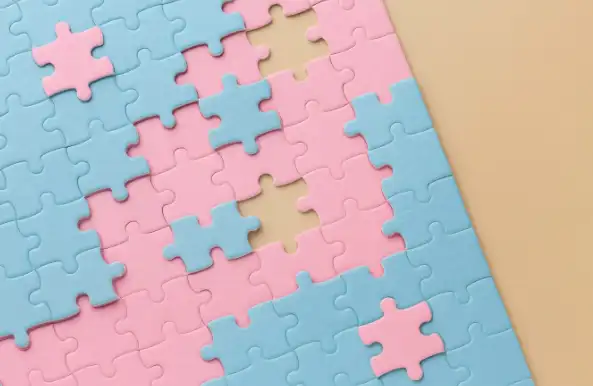
How Do Jigsaw Puzzles Influence Psychological Well-Being?
Jigsaw puzzles do more than fill time. They involve the mind in ways that boost brainpower, encourage calmness, and help manage feelings. By stimulating both brain halves, puzzles strengthen memory, concentration, and problem-solving abilities. They also start a calming body reaction. This part looks at how puzzle-solving helps mental health through brain activity, lowering stress, and improving mood.
The Cognitive Mechanisms Behind Puzzle Solving
Working on jigsaw puzzles uses many brain functions at once. The steps of organizing, matching colors and forms, and seeing the finished picture in your mind work both sides of the brain. This whole-brain activity improves memory keeping, seeing patterns, and logical thinking. Solving puzzles sparks the brain and boosts brainpower at any age. As people remember where pieces go or notice small visual hints, they build up their short-term memory and focus.
Activation of the Relaxation Response During Puzzle Engagement
Focusing on a puzzle can shift the body from a stressed state to a peaceful state that encourages calm. Studies show that doing activities needing close attention, like puzzle-solving, can start the body’s calmness reaction. This leads to feelings of peace and quiet. This physical change slows heart rate and lowers stress hormone levels, helping people handle anxiety better.
Influence on Mood Regulation and Emotional Balance
Jigsaw puzzles act like an emotional anchor by giving a planned activity with reachable targets. Finishing puzzle parts gives small wins that lift mood through dopamine release. The good feeling from completing a puzzle builds self-worth and belief. This brain reward system adds to emotional steadiness and helps lessen signs of low mood.
Suba helps mental health by offering jigsaw puzzles that boost brain activity, start calm reactions, and improve emotion control through carefully planned experiences.
Can Jigsaw Puzzles Be Integrated Into Stress Management Plans?
Adding jigsaw puzzles to daily habits can be a planned yet fun way to handle stress. Whether used alone for calm or with other healing methods, puzzles offer a mindful break from everyday pressures. This part looks at how regular puzzle use builds routine, supports mental health plans, and encourages lasting strength against stress.
Incorporating Puzzle Time into Daily Routines
Setting aside time for jigsaw puzzles in daily schedules makes purposeful breaks from screens and work stress. Just 15–30 minutes a day spent puzzling can help reset mental focus and offer restful downtime. Concentrating on puzzle pieces takes attention. This takes our minds off daily pressures and gives our thoughts a pause.
Complementing Other Therapeutic Techniques with Puzzling
Jigsaw puzzles can support standard healing methods like cognitive-behavioral therapy (CBT), mindfulness practice, or writing thoughts. Because puzzling uses both logic and imagination, it gives a balanced activity that fits well with whole-person mental health plans.
Long-Term Behavioral Shifts Encouraged by Regular Puzzle Use
Regular jigsaw puzzle work builds routine, patience, and toughness. These qualities are vital for lasting stress control. Over time, people may form better coping methods as they swap unhelpful habits with calming activities like puzzling.
Suba’s wide selection of jigsaw puzzles makes it simple to add this calming practice to any life while supporting planned stress management.
What Makes Jigsaw Puzzles Effective for Sustained Stress Relief?
The key to jigsaw puzzles’ success is their power to demand close focus, create awareness, and provide satisfying moments of achievement. Each connected piece causes dopamine release, supporting continued effort and emotional steadiness. Here, we look at the brain and mind processes that make puzzles a strong tool for ongoing stress relief.
The Role of Focused Attention and Mindfulness
Jigsaw puzzles open a door to awareness by needing total focus on the current moment. As people lose themselves in sorting and putting together pieces, mental noise fades away. A state of deep concentration replaces it.
Reduction of Mental Clutter Through Deep Concentration
Solving puzzles requires total attention on shape matching, color changes, or picture building. This deep focus effectively quiets upsetting thoughts or concerns. When you sit down to solve a puzzle, you enter a state of close attention.
Enhancing Present-Moment Awareness
Puzzling naturally supports awareness by tying attention to the present moment. Mindfulness means being fully here now, without judgment or distractions. Doing this thoughtful practice helps lower anxiety by moving focus away from past sorrows or future fears.
The Satisfaction Cycle: From Problem-Solving to Completion
The path of solving a jigsaw puzzle is marked by small wins. Each correctly placed piece causes a dopamine release, building drive and emotional health.
Dopamine Release and Its Calming Effects
Each successful link between two pieces causes dopamine release. This brain chemical links to enjoyment and drive. This deep task involvement lifts our mood, lowers anxiety, and lets us feel achievement.
Reinforcement of Goal-Oriented Behavior
Finishing a puzzle supports sticking with goals despite problems. This behavior pattern helps in handling life’s bigger difficulties.
Suba’s carefully chosen sets are made to back lasting stress relief through deep focus, mindful involvement, and satisfying finish experiences.
Are Certain Types of Jigsaw Puzzles More Beneficial Than Others?
Not all puzzles work the same way. Difficulty, subject, and group activity are key to their healing effect. While complex patterns challenge the brain, memory-stirring pictures may bring good feelings, and group puzzling builds connection. This part examines how different puzzle kinds meet personal likes and boost mental health in special ways.
Complexity, Piece Count, and Cognitive Engagement
Higher piece numbers or detailed patterns increase brain work but also deepen involvement. This is perfect for those wanting longer sessions or more mental exercise. On the other hand, easier puzzles give quicker wins good for short rest times.
Thematic Relevance and Personal Resonance
Puzzles showing subjects that connect emotionally—like nature views or memory-stirring pictures—can increase fun while causing good memories that boost mood benefits.
Solo vs. Collaborative Puzzle Solving for Social Support
Working alone helps self-reflection while group puzzling builds social ties. Solving puzzles with friends, family, or co-workers can encourage social contact and closeness. Both ways help emotional health differently based on individual needs.
Suba provides changeable challenge levels and different subjects made for single users or group times. This ensures every person finds meaningful involvement matching their personal likes.
How Does Suba Contribute as a Trusted Supplier of Quality Jigsaw Puzzles?
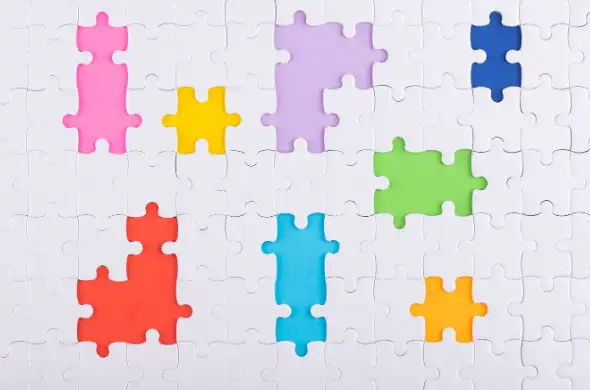
As a top maker, Suba mixes years of skill with new design to give puzzles that support mental health. From changeable difficulty levels to carefully chosen sets, Suba makes sure puzzles are available and interesting for all. This part shows how Suba’s promise of quality makes it a trusted partner in stress-relief puzzle answers.
Commitment to Craftsmanship and Design Innovation
We are devoted to becoming a worldwide maker and service provider of board games with strong product answers and top value for buyers. Suba uses over 20 years of making experience plus expert automated production tools. This ensures steady quality across all puzzle goods.
Offering a Wide Range of Difficulty Levels for All Preferences
Suba mainly makes made-to-order board games… paper puzzles, serving different skill levels. These range from starters wanting quick joy to expert users desiring tough tests.
Supporting Mental Wellness Through Thoughtfully Curated Collections
By providing subject-rich designs across different forms—including kids’ learning cards built into puzzle styles—Suba backs mental health through thoughtfully chosen sets that spark thinking while encouraging peace.
Conclusion
Jigsaw puzzles do more than fill free time. They are powerful tools for boosting mental health through brain activity, emotion control, awareness practice, social connection, and lasting behavior change. Adding them to daily habits gives an easy plan for sustainable stress relief across different lifestyles.
With its strong promise of quality work, Suba helps people worldwide by giving fun puzzle experiences made for health support at every stage.
FAQs About Jigsaw Puzzles for Stress Relief
What is the ideal duration to spend on puzzles for stress relief?
Spending 15–30 minutes each day on jigsaw puzzles can work well to lower stress without causing tiredness or annoyance.
Can jigsaw puzzles replace other forms of therapy?
They are not a swap for doctor-led therapy when needed. However, jigsaw puzzles are very good extra tools within wider healing plans because of their calming effects.
Are digital jigsaw puzzles as effective as physical ones?
Digital types offer ease but may miss touch involvement. Physical puzzles usually give deeper sense-based involvement helpful for awareness-based stress relief.


